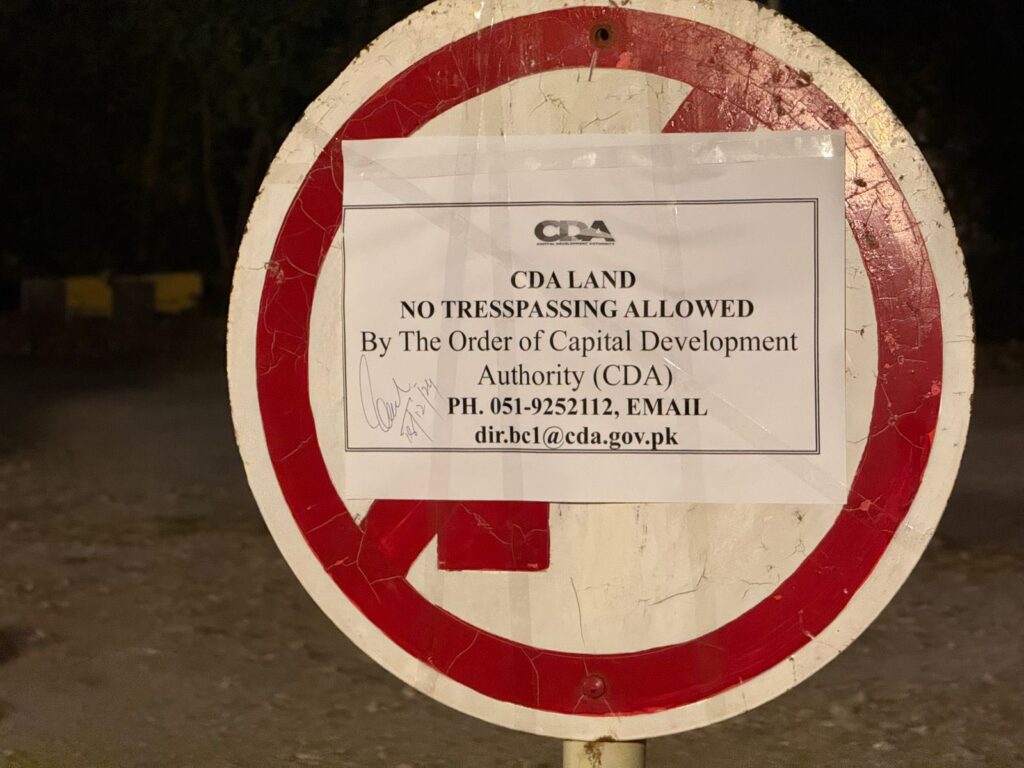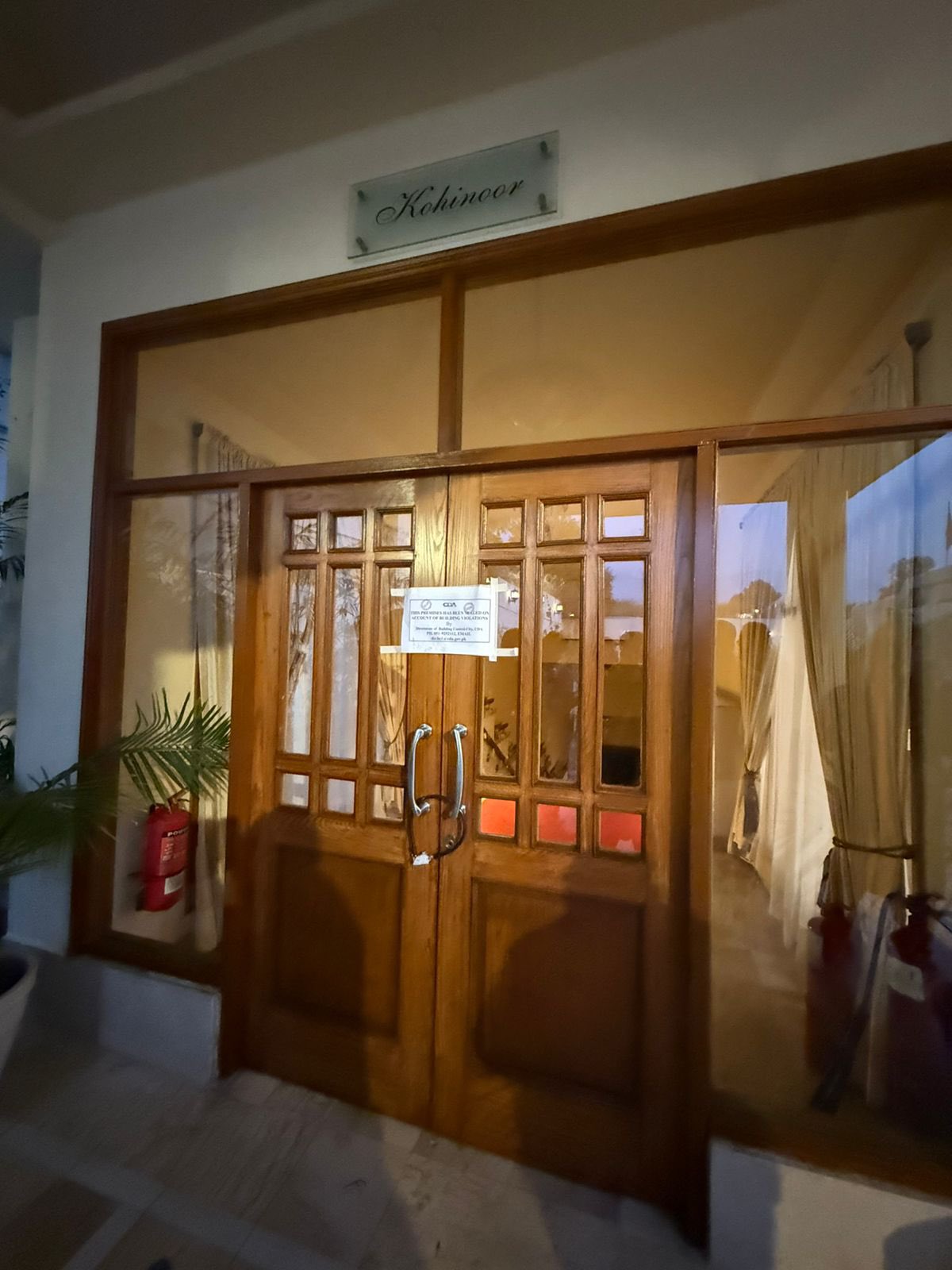PTBP Web Desk
The Capital Development Authority (CDA) has taken decisive action by sealing the Islamabad Marriott Hotel due to multiple legal violations. This significant step underscores the CDA’s commitment to upholding the law and ensuring public safety. The iconic hotel, located in the heart of Islamabad, faces serious allegations that range from non-compliance with building regulations to financial irregularities.
The CDA’s action is based on several grave accusations against the Islamabad Marriott Hotel:
Absence of Completion Certificate
The hotel allegedly operates without a completion certificate, a critical document that ensures a building meets all legal and safety standards. The absence of this certificate poses significant risks to public safety, as compliance with structural and safety regulations cannot be guaranteed.

Illegal Use of the Basement
According to the CDA, the hotel has been using its basement for purposes not authorized in its building plan. Unauthorized modifications and use of spaces can create hazards, including fire risks and compromised building integrity.
Encroachment on Green Belt
The hotel is accused of encroaching on the city’s green belt by using it for parking. Such encroachments not only violate zoning laws but also disrupt the city’s ecological balance, affecting the environment and public spaces.
Non-Payment of Dues
One of the most significant charges is the non-payment of dues amounting to 160 million Pakistani Rupees. The CDA considers this a serious violation, reflecting financial non-compliance and undermining the city’s revenue collection.
The Capital Development Authority has reiterated that no individual or institution is above the law. The sealing of the Islamabad Marriott Hotel sends a strong message to other entities that might consider bypassing legal regulations. A CDA spokesperson emphasized the importance of adhering to legal frameworks to ensure public safety and maintain the city’s order.
The spokesperson further stated that such actions are necessary to set a precedent. Institutions must operate within the bounds of the law to avoid penalties or actions such as sealing and fines.
The sealing of the hotel has significantly disrupted its operations. As one of Islamabad’s most prominent hospitality establishments, the Marriott serves numerous local and international guests. The closure could lead to considerable financial losses for the management, while also affecting employees and related businesses.
The hotel’s management has yet to issue an official statement addressing the allegations and the CDA’s action. Observers speculate that the hotel may seek legal recourse to resolve the matter and restore operations.
The sealing of the Islamabad Marriott Hotel has sparked discussions among the public and stakeholders in the real estate and hospitality sectors. Many have praised the CDA’s firm stance against violations, highlighting the importance of upholding safety standards and enforcing financial accountability.
Some have criticized the move, suggesting it could harm the city’s reputation as a business-friendly destination. Industry experts argue that while regulatory compliance is essential, authorities should also ensure a balanced approach to avoid potential negative impacts on investment and tourism.
The CDA has indicated that this action is part of a broader campaign to address legal violations across Islamabad. The authority is reportedly conducting inspections of other commercial properties to identify and penalize similar offenses.
By targeting high-profile cases like the Islamabad Marriott Hotel, the CDA aims to strengthen its regulatory framework and deter others from flouting the law. This proactive approach could lead to improved urban management and a safer environment for the city’s residents and visitors.
Legal experts suggest that the Marriott management may challenge the CDA’s decision in court. If successful, the hotel could negotiate a settlement, clear pending dues, and implement the required changes to resume operations.
On the other hand, failure to address these violations could result in long-term reputational damage and financial losses for the hotel.




